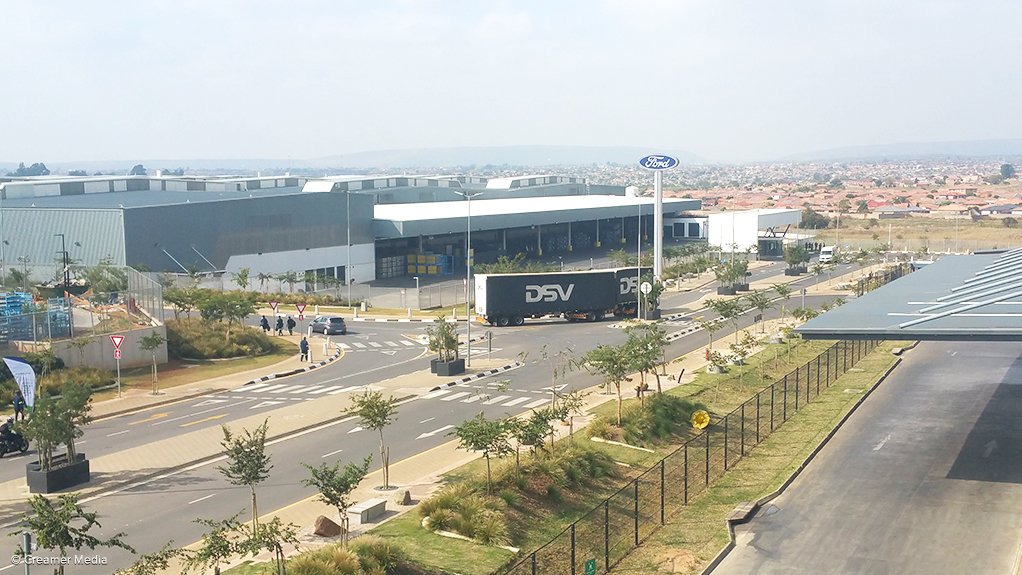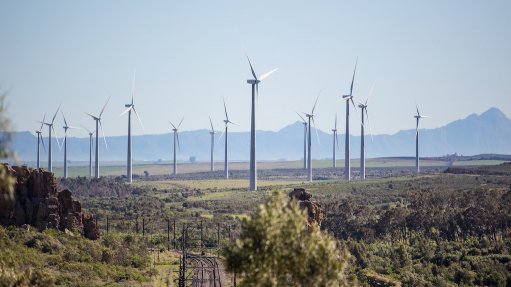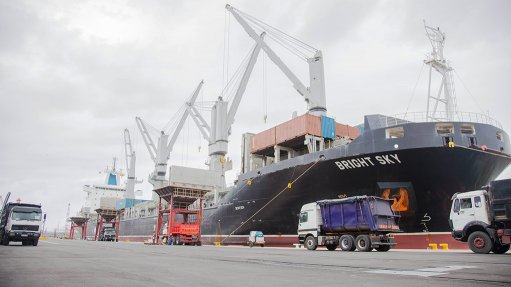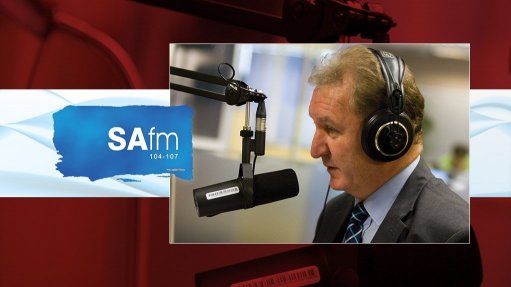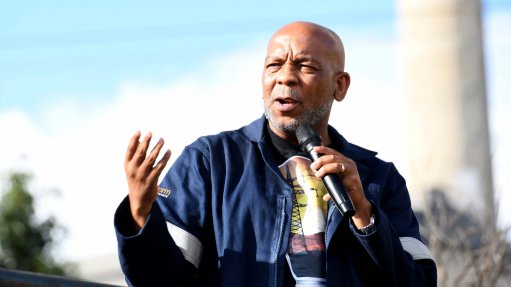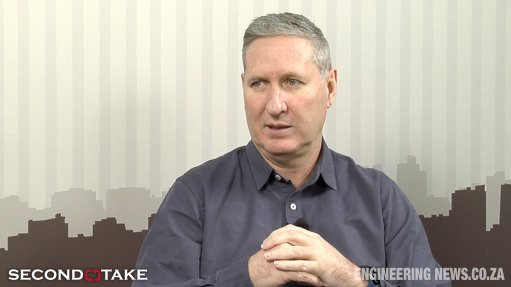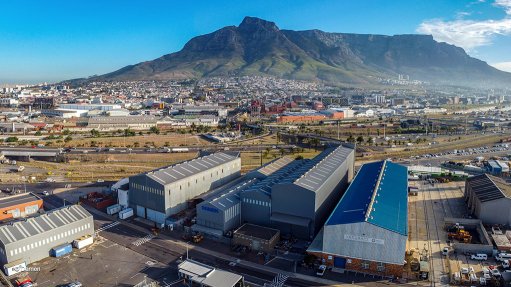Tshwane Automotive SEZ celebrates training of first cohort of youth
The Tshwane Automotive Special Economic Zone (TASEZ) on May 14 celebrated the first cohort of 526 local youths trained in safety, health, environment and quality to participate in different parts of the automotive value chain.
These skills were critical in all aspects of the automotive value chain, said TASEZ CEO Dr Bheka Zulu.
The event also saw the formal launch of the TASEZ Academy, with a new bespoke training centre to be built. Students are currently using existing buildings in the automotive manufacturing zone until the new centre has been completed, he said.
Subsequent skills development will focus on different technical skills along the automotive value chain and courses are being developed in partnership with the automotive manufacturers and their suppliers to ensure that the skills are not only in demand, but also bolster the local operations of these companies in step with their objectives.
"It is important to start building capacity now so that, by the time demand for the skills comes as subsequent phases of the TASEZ are developed, the automotive manufacturers and supplier companies have a capable workforce of skilled local people to draw on," he said.
"We want our townships and people residing in them to see economic development. We are committed to developing township economies. Interventions such as skills development initiatives in line with global automotive standards will support economic development in our communities, in Gauteng and the country," he added.
Skilled individuals will also help to support and fast-track development of local small, medium-sized and microenterprises (SMMEs) within the automotive value chain.
"Technical skills will help to ensure the TASEZ will grow and deliver the expected jobs for our communities and the expected benefits for companies in the zone," said Zulu.
TASEZ had established a community participation committee (CPC) with the local Mamelodi, Eersterust and Silverton communities. The ownership of the academy was vested with these communities, as it was for their benefit and to enable their people to participate in the industry, he emphasised.
"The CPC helped us to craft the journey that will culminate in benefits for the communities as the zone is developed," said Zulu.
The aim of the academy is to ensure the relevant skills required by different companies supplying into the automotive manufacturing industry and companies manufacturing vehicles are present when the subsequent phases of development of the TASEZ start.
"We want to feed the industry with the relevant skills required, when required, and to upskill those who want to participate in the sector and to reskill those who want to further their careers," he said.
TASEZ currently hosts 12 factories, including suppliers into the industry and vehicle manufacturers.
The event also celebrated the completion of Phase 1 of the TASEZ, with Phase 2 expected to start in July or August this year. Phase 2 would comprise a new industrial node, and space within it had almost sold out before the project had started, TASEZ business development executive Msokoli Ntombana pointed out.
Later stages of Phase 2 will also see the start of a manufacturing SMME incubation programme to develop new enterprises owned and run by local people.
During Phase 1, 5 071 construction jobs were created, with at least 50% of the jobs earmarked for youths and 18% for women, he said.
Further, 3 244 permanent jobs have been created from development of the zone thus far, and 65% of those employed are from the local communities, 32% are women and 0.83% are people with disabilities.
"The catalyst for the development of Phase 2 was the $1-billion (R16-billion) investment commitment made by automotive manufacturer Ford Motor Company of Southern Africa into its own plant within the TASEZ. Ford is investing to transition from internal combustion engines to new energy vehicles.
"TASEZ thanks Ford for kickstarting Phase 2," said Ntombana.
Meanwhile, he highlighted that State-owned Transnet had committed to improving the railway line from Gauteng to Port Elizabeth, so that companies in the TASEZ could use it for inbound and outbound logistics.
This project should be completed towards the end of the year or by next year, he added.
The TASEZ had secured R1.7-billion in funding from National Treasury and other funding partners to develop 370 SMMEs that would produce components and inputs to the international standards required by automotive manufacturers, said Ntombana.
The aim to develop the 370 SMMEs arose from 265 procurement packages issued by companies in the value chain and, of this procurement spending, the aim is to ensure 43% of the SMMEs developed are owned by women, 18% by youth and 2% by people with disabilities.
Locally supplied content in the automotive industry value chain is 39% currently, and the aim is to increase this to 60% by 2035.
Black industrialists owned less than 0.3% of the local automotive industry, and the only way to get to the target of 25% black industrialist ownership by 2035 was through incubation programmes to ensure black industrialists participated in the automotive supply chain, he noted.
"Barriers to entry into the automotive industry are high, and the programme will focus on training and mentoring SMMEs to ensure they can participate fully in the value chain, not only as subcontractors, but also as main contractors," said Ntombana.
The TASEZ will rely on sector education and training authorities (Setas) to provide learnership, internship and skills development programmes, as well as coaching and mentoring, until the TASEZ Academy has been built.
"We decided to implement the skills development programme remotely until the academy is complete so that we can start immediately, and so that we can start to train local people in mechatronics, robotics and coding.
"We also have a Grade 10 to 12 science, technology, engineering and mathematics programme in place in partnership with the Setas and the University of Pretoria to develop black engineers.
"The intention is to encourage the development of local intellectual property in the automotive industry. We have set aside funding for 40 engineering degrees, 20 master's degrees and ten PhD degrees. The master's and PhD degrees will be done in partnership with the Council for Scientific and Industrial Research and other research centres.
"This will increase the academic capacity within the local communities, and help to ensure inclusive economic development," Ntombana said.
Comments
Press Office
Announcements
What's On
Subscribe to improve your user experience...
Option 1 (equivalent of R125 a month):
Receive a weekly copy of Creamer Media's Engineering News & Mining Weekly magazine
(print copy for those in South Africa and e-magazine for those outside of South Africa)
Receive daily email newsletters
Access to full search results
Access archive of magazine back copies
Access to Projects in Progress
Access to ONE Research Report of your choice in PDF format
Option 2 (equivalent of R375 a month):
All benefits from Option 1
PLUS
Access to Creamer Media's Research Channel Africa for ALL Research Reports, in PDF format, on various industrial and mining sectors
including Electricity; Water; Energy Transition; Hydrogen; Roads, Rail and Ports; Coal; Gold; Platinum; Battery Metals; etc.
Already a subscriber?
Forgotten your password?
Receive weekly copy of Creamer Media's Engineering News & Mining Weekly magazine (print copy for those in South Africa and e-magazine for those outside of South Africa)
➕
Recieve daily email newsletters
➕
Access to full search results
➕
Access archive of magazine back copies
➕
Access to Projects in Progress
➕
Access to ONE Research Report of your choice in PDF format
RESEARCH CHANNEL AFRICA
R4500 (equivalent of R375 a month)
SUBSCRIBEAll benefits from Option 1
➕
Access to Creamer Media's Research Channel Africa for ALL Research Reports on various industrial and mining sectors, in PDF format, including on:
Electricity
➕
Water
➕
Energy Transition
➕
Hydrogen
➕
Roads, Rail and Ports
➕
Coal
➕
Gold
➕
Platinum
➕
Battery Metals
➕
etc.
Receive all benefits from Option 1 or Option 2 delivered to numerous people at your company
➕
Multiple User names and Passwords for simultaneous log-ins
➕
Intranet integration access to all in your organisation



